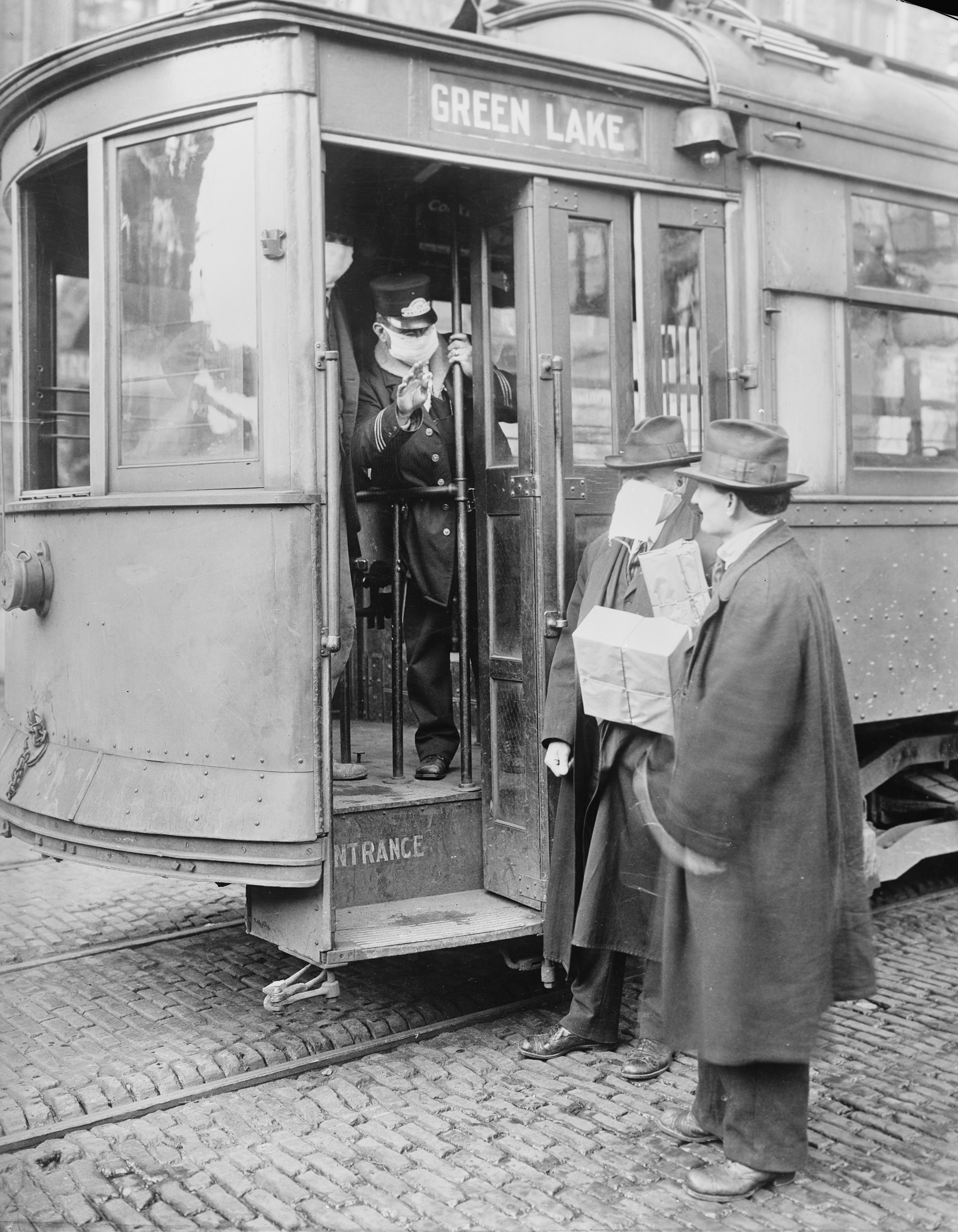
Precautions taken in Seattle, WA, during the Spanish influenza epidemic would not permit anyone to ride on the streetcars without wearing a mask, c. 1918. Library of Congress, Prints and Photographs Divison.
• On the women who voted in New Jersey in the eighteenth century. (JSTOR Daily)
• How pandemics affect history. (NewYorker.com)
• “Fun fact: when a French physician dissected this organ for the first time in 1545, he named it membre honteux—‘the shameful member’—and declared its sole purpose to be urination. The earlier origins of the word are murky. Clitoris comes from the Greek kleitoris, which has been translated as both ‘little hill’ and ‘to rub,’ suggesting an ancient play on words.” (Scientific American)
• On the magazine Amauta. (Hyperallergic)
• “It’s an unfortunate situation that America has the history it has and has done very little if anything to make amends for the atrocities of the past. We need to work together to find the answer so all hearts are satisfied in the end.” (Tampa Bay Times)
• A new home for Jeremy Bentham’s auto-icon: “For Bentham, assessing the move of the auto-icon—as indeed for anything else—would be a utility calculation. Does the auto-icon’s new location make people happy or not—that would be the only thing that matters.”(Atlas Obscura)
• The history of superheroes. (Aeon)
• Revisiting the impact of the Boston Massacre. (Smithsonian.com)
• “Secret doorway in Parliament leads to historical treasure trove.” (BBC News)
• This week in obituaries: the Joe in Trader Joe’s, the man inside the Actors Studio, a UN chief, an author of children’s books, an astronomer, an architect, the “Lady Macbeth of Albania,” the first “Rosie the Riveter,” a historian, and a biographer.